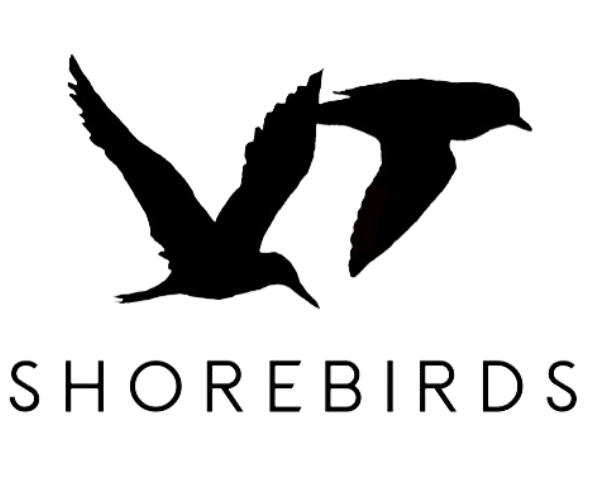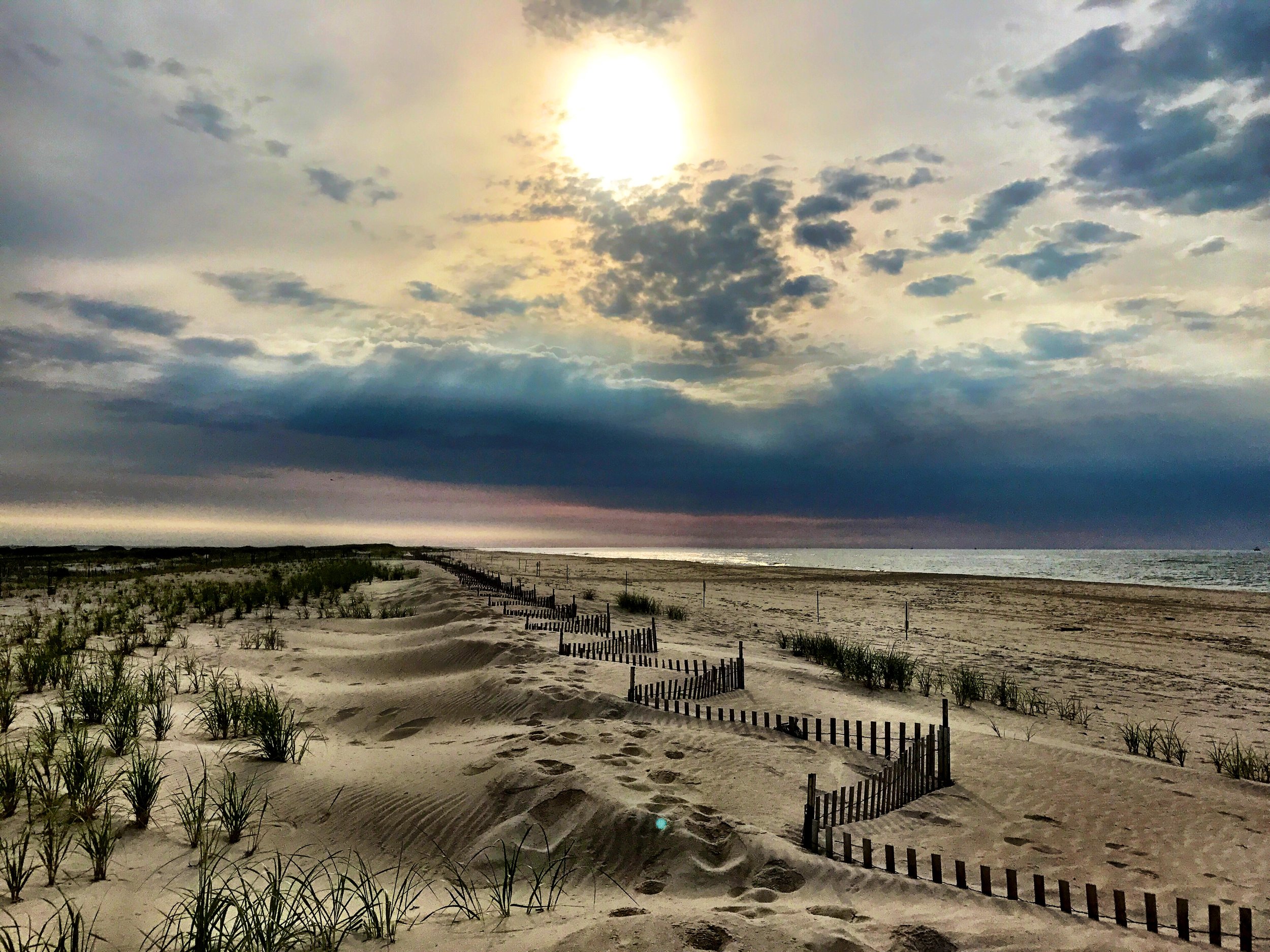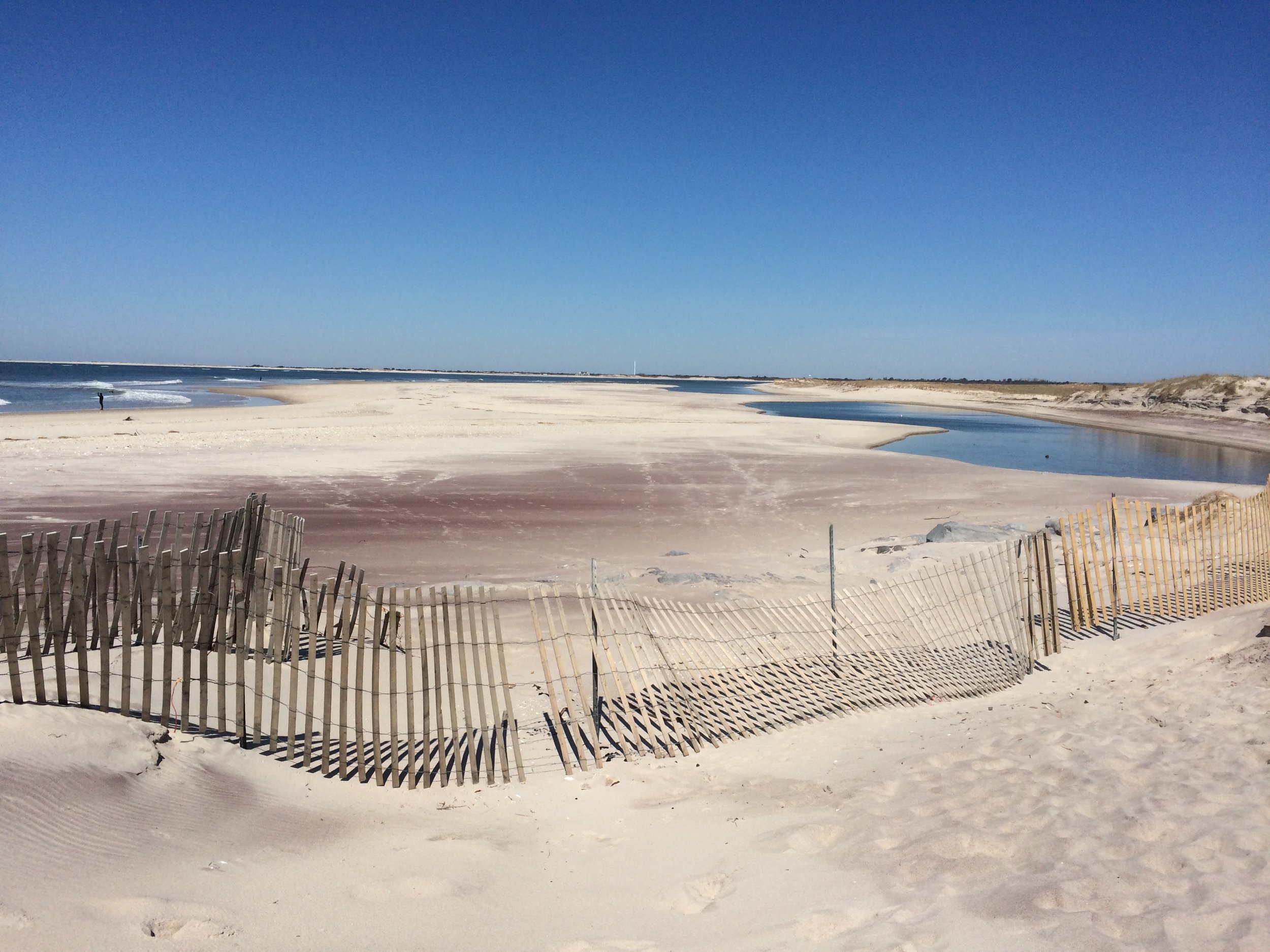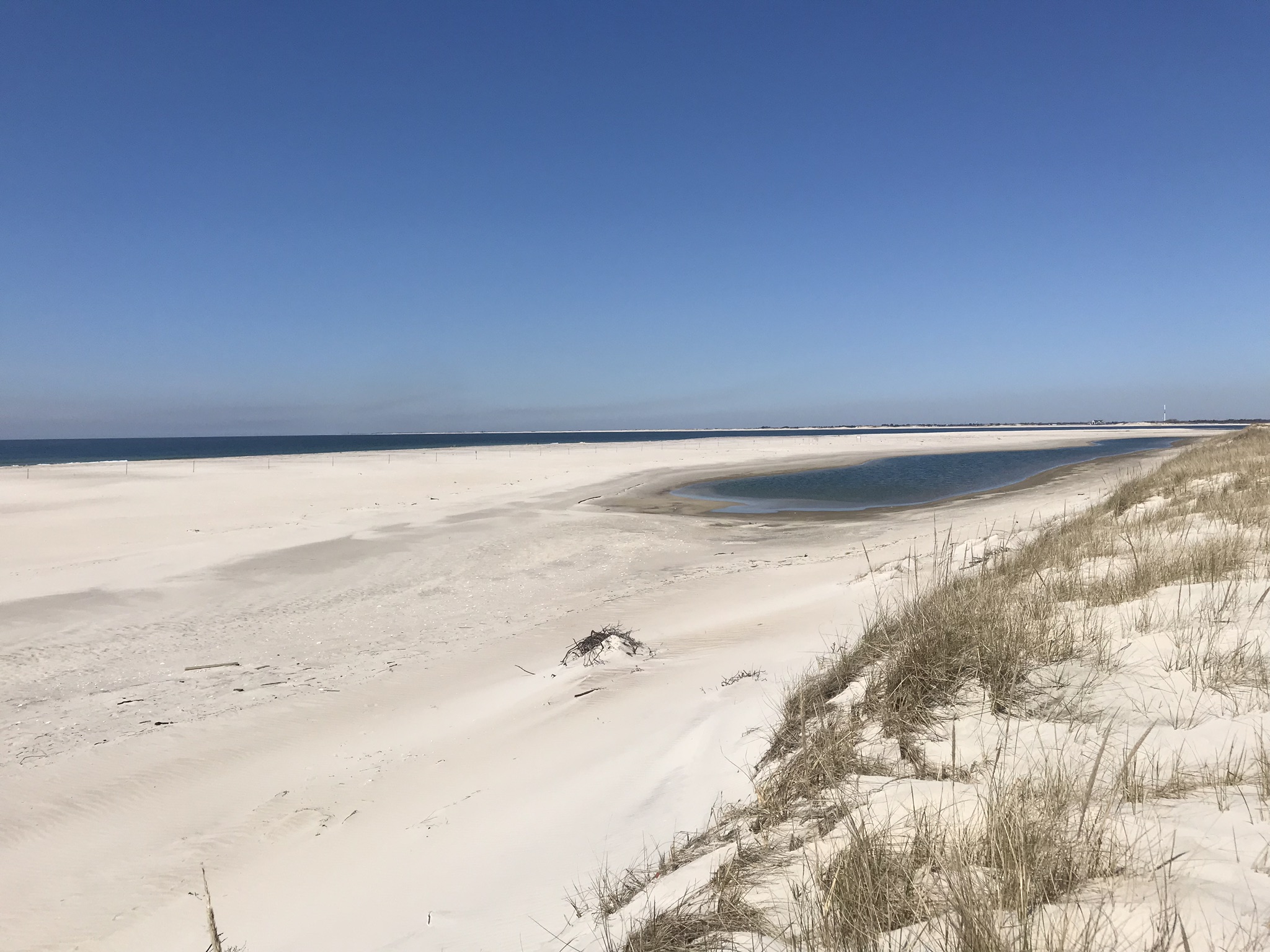Long Island Project
Habitat as a limiting factor.
VTSP’s shorebird research in NY began in 1992 and always has focused on habitat as a factor influencing the distribution and abundance of breeding plovers. Our work with Atlantic Coast plovers over the last four decades has shown us that plover demography and growth is highly dependent on the types of habitat available to birds (Robinson et al. 2021), the extent of human recreation (DeRose-Wilson et al. 2018), and is strongly influenced by storm disturbance (Walker et al. 2019, Robinson et al. 2020).
In October 2012, Hurricane Sandy made landfall on the Atlantic Coast, affecting most of the United States coastline and quickly becoming one of the most costly hurricanes on record. Hurricane Sandy eroded dunes, caused several overwashes, and breached Fire Island and Westhampton Island in three locations. Two breaches were subsequently filled by the US Army Corps of Engineers and one was left to undergo natural erosion and accretion processes. In response to Hurricane Sandy, we began monitoring the piping plovers on Fire Island and the west end of Westhampton Island in 2013 to understand the population response to new habitat created by Hurricane Sandy. Following Hurricane Sandy, the islands were also stabilized with artificial dunes, American beachgrass plantings, and beach nourishment, which led to the creation of two restoration areas to mitigate for the potential loss of plover habitat to stabilization efforts. The temporal overlap and proximity of the hurricane- and human-manipulated habitat has led to an ideal semi-natural experiment for understanding the potential effects of many different habitat configurations to piping plovers on all of the constituent elements of population change: birth, death, immigration, and emigration.
Since the beginning of the project, we have been evaluating plover demography, food availability, and habitat selection across the study area to inform future plover habitat creation, management, and restoration. We are also broadly seek to understand how Fire Island fits into the regional breeding population (Weithman et al. 2019) and predator responses to plover management (Black et al. 2023).
We provide in-depth analyses in our annual monitoring reports, available for download below.
Wails, C. N., H. L. VanDerwater, H. A. Bellman, K. M. Black, A. DeRose-Wilson, S. S. Dorsey, K. W. Oliver, S. J. Ritter, S. G. Robinson, D. H. Catlin, S. M. Karpanty, and J. D. Fraser. 2023. Effectiveness monitoring and targeted studies in support of FIMI conservation measures. Annual report prepared by the Virginia Tech Shorebird Project. Virginia Tech, Blacksburg, VA. [pdf]
Wails, C. N., H. A. Bellman, K. M. Black, A. DeRose-Wilson, S. S. Dorsey, K. E. Johnson, S. J. Ritter, S. G. Robinson, H. L. VanDerwater, K. M. Walker, D. H. Catlin, S. M. Karpanty, and J. D. Fraser. 2022. Effectiveness monitoring and targeted studies in support of FIMI conservation measures. Annual report prepared by the Virginia Tech Shorebird Project. Virginia Tech, Blacksburg, VA. [pdf]
Wails, C. N., S. G. Robinson, K. M. Walker, S. S. Dorsey, G. D. Hevia, S. J. Ritter, D. H. Catlin, S. M. Karpanty, and J. D. Fraser. 2021. Effectiveness monitoring and targeted studies in support of FIMI conservation measures. Annual report prepared by the Virginia Tech Shorebird Project. Virginia Tech, Blacksburg, VA. [pdf]
Walker, K. M., S. G. Robinson, K. M. Black, C. C. Robertson, S. J. Ritter, D. H. Catlin, S. M. Karpanty, and J. D. Fraser. 2020. Effectiveness monitoring and targeted studies in support of FIMI conservation measures: Piping plover and red fox monitoring on Fire Island and Westhampton Island, New York. Annual report prepared by the Virginia Tech Shorebird Project. Virginia Tech, Blacksburg, VA. [pdf]
Robertson, C. C., K. M. Black, S. G. Robinson, K. M. Walker, H. A. Bellman, A. DeRose-Wilson, S. J. Ritter, D. H. Catlin, S. M. Karpanty, and J. D. Fraser. 2019. Effectiveness monitoring and targeted studies in support of FIMI conservation measures: Piping plover and red fox monitoring on Fire Island and Westhampton Island, New York. Annual report prepared by the Virginia Tech Shorebird Project. Virginia Tech, Blacksburg, VA. [pdf]
Hermanns, L. F., K. M. Black, S. G. Robinson, K. M. Walker, H. A. Bellman, J. D. Fraser, D. H. Catlin, S. J. Ritter, and S. M. Karpanty. 2018. Effectiveness monitoring and targeted studies in support of FIMI conservation measures: Piping plover and red fox monitoring on Fire Island and Westhampton Island, New York. Annual report prepared by the Virginia Tech Shorebird Project. Virginia Tech, Blacksburg, VA. [pdf]
Granger, L. M., K. M. Black, S. G. Robinson, K. M. Walker, H. A. Bellman, J. D. Fraser, D. H. Catlin, S. J. Ritter, and S. M. Karpanty. 2017. Piping plover and fox monitoring on Fire Island, NY. Annual report prepared by the Virginia Tech Shorebird Project. Virginia Tech, Blacksburg, VA. [pdf]
Carey, A. M., K. Miles, S. G. Robinson, K. M. Walker, E. Kwon, J. D. Monk, H. A. Bellman, A. DeRose-Wilson, K. Hunt, J. D. Fraser, D. H. Catlin, S. Ritter, S. M. Karpanty, and D. Sanger. 2016. Multiple factor analysis of piping plovers and other beach-dependent species habitat use and population dynamics following storm and human created changes to barrier island habitats within the Fire Island National Seashore. Annual report prepared by the Virginia Tech Shorebird Project. Virginia Tech, Blacksburg, VA. [pdf]
Monk, J. D., K. Miles, A. DeRose-Wilson, J. D. Fraser, D. H. Catlin, S. Ritter, K. M. Walker, and S. M. Karpanty. 2015. Piping plover and red fox monitoring on Fire Island, NY. Annual report prepared by the Virginia Tech Shorebird Project. Virginia Tech, Blacksburg, VA. [pdf]
DeRose-Wilson, A., J. D. Fraser, D. H. Catlin, S. M. Karpanty, and S. J. Ritter. 2014. Response of piping plovers and their invertebrate prey to habitats created by Hurricane Sandy. Annual report prepared by the Virginia Tech Shorebird Project. Virginia Tech, Blacksburg, VA. [pdf]
DeRose-Wilson, A., K. Sloan, J. D. Fraser, D. H. Catlin, and S. M. Karpanty. 2013. Response of piping plovers and their invertebrate prey to habitats created by Hurricane Sandy. Annual report prepared by the Virginia Tech Shorebird Project. Virginia Tech, Blacksburg, VA. [pdf]



